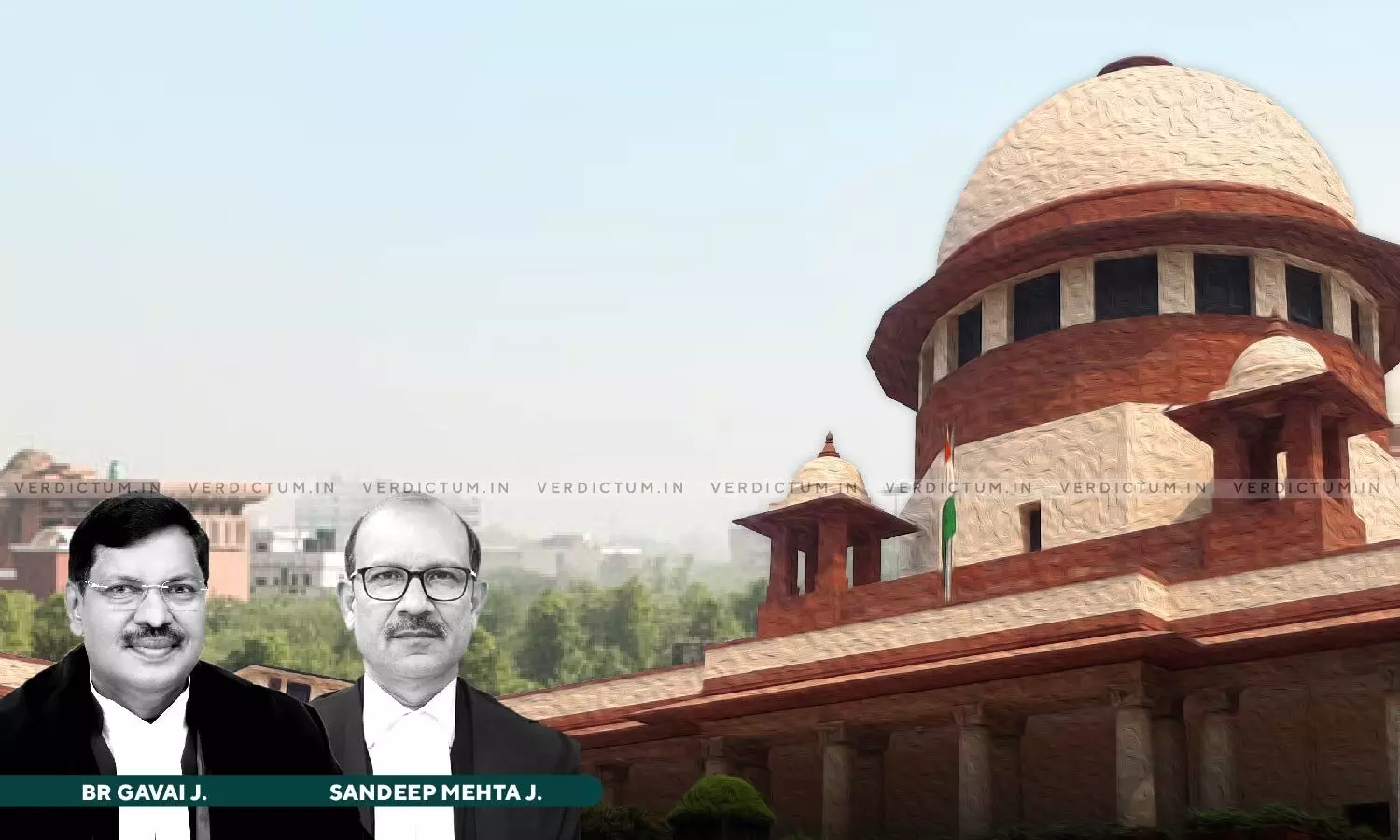
Supreme Court Issues Notice In Plea Challenging High Court’s Order Closing Contempt Petition Despite Finding Violation Of Guidelines Issued In Arnesh Kumar's Case
 |
|The Supreme Court today issued notice in a plea challenging an order of the Madras High Court closing the Contempt Petition filed alleging violation of the guidelines of arrest in Arnesh Kumar v. State of Bihar & Anr. (2014) 8 SCC 273, despite holding that the arrest of the Contempt Petitioner in a case involving 498A of IPC was made in a hasty manner.
The High Court had closed the petition while giving a mere warning to the contemnor (Inspector of Police) as she tendered an unconditional apology for flouting the guidelines issued by the Supreme Court in Arnesh Kumar's case.
A Bench of Justice B.R. Gavai and Justice Sandeep Mehta issued notice in the matter after hearing Senior Advocate K.P.S. Palanivel Rajan and AoR A.Velan for the petitioner.
The Contempt Petitioner was the husband of the complainant, who arrayed the Contempt Petitioner and his parents in a matrimonial case for offences under Sections 498A, 406, 417, 420, 506(1) of the Indian Penal Code, 1860, (IPC) read with Section 4 of the Tamil Nadu Prohibition of Harassment of Women Act, 2022. It was alleged that the Contempt Petitioner, along with his parents, participated in heinous domestic violence and demanded dowry from the complainant/wife on various occasions.
Pursuant to registration of the FIR, the Contemnor Police (Respondent No.1) and her team of police allegedly trespassed into the house of the petitioner in the wee hours at about 5.30 am, and dragged the contempt petitioner and his parents to the police station and thereafter served notice of appearance under Section 41 A of the Code of Criminal Procedure 1973 in the police station.
Therefore, a contempt petition was filed and it was alleged that the arrest was done without conducting proper preliminary enquiry following the guidelines laid down in Arnesh Kumar v. State of Bihar and Another, 2015 (1) LW (Crl.) 318) and Lalita Kumari v. Government of Uttar Pradesh and Others (2014) (2) SCC 1.
The SLP thus sought to set aside the impugned order of the High Court stating that there was wilful disobedience on part of the Respondent No. 1-Contemnor and that the apology in question was nothing but a weapon to defend the said contemptuous action and save oneself from the rigours of law.
It is pertinent to note that the impugned order read, “…But in this case, we are of the considered view that, though the contemnor police has acted hastily, once this Court issued notice on her, without any delay, voluntarily and spontaneously an unconditional apology was tendered by her in her counter affidavit filed at the earliest point of time. Adding to her contrition on her appearance before this Court during the hearing of this case, her demeanour with moist eyes and humility grabbed attention".
"...Though we are not inclined to uphold the hasty arrest of the contempt petitioner by the contemnor police in a matrimonial case, who was summoned to the jurisdictional All Women Police Station under Section 41A of the Code of Criminal Procedure, we are also shell shocked by the gravity of dowry demand, harassment and cruelty meted out to the de-facto complainant...Since the investigation of the said crime is not yet over, we refrain ourselves from going into the pros and cons of the said FIR. However, the unconditional apology tendered by Mrs. Vimala in her affidavit would purge her from contempt”, it further read.
In the impugned order, the High Court even expressed displeasure about the unethical arrest of the contempt petitioner by the contemnor police while exhibiting police arrogance to the extent of violating the directions of the Supreme Court. Accordingly, the High Court had strictly warned the contemnor police not to repeat such abominable conduct in the discharge of her duties as a police officer any further.
Cause Title: K. Janarthan v. State of Tamil Nadu, Director General of Police